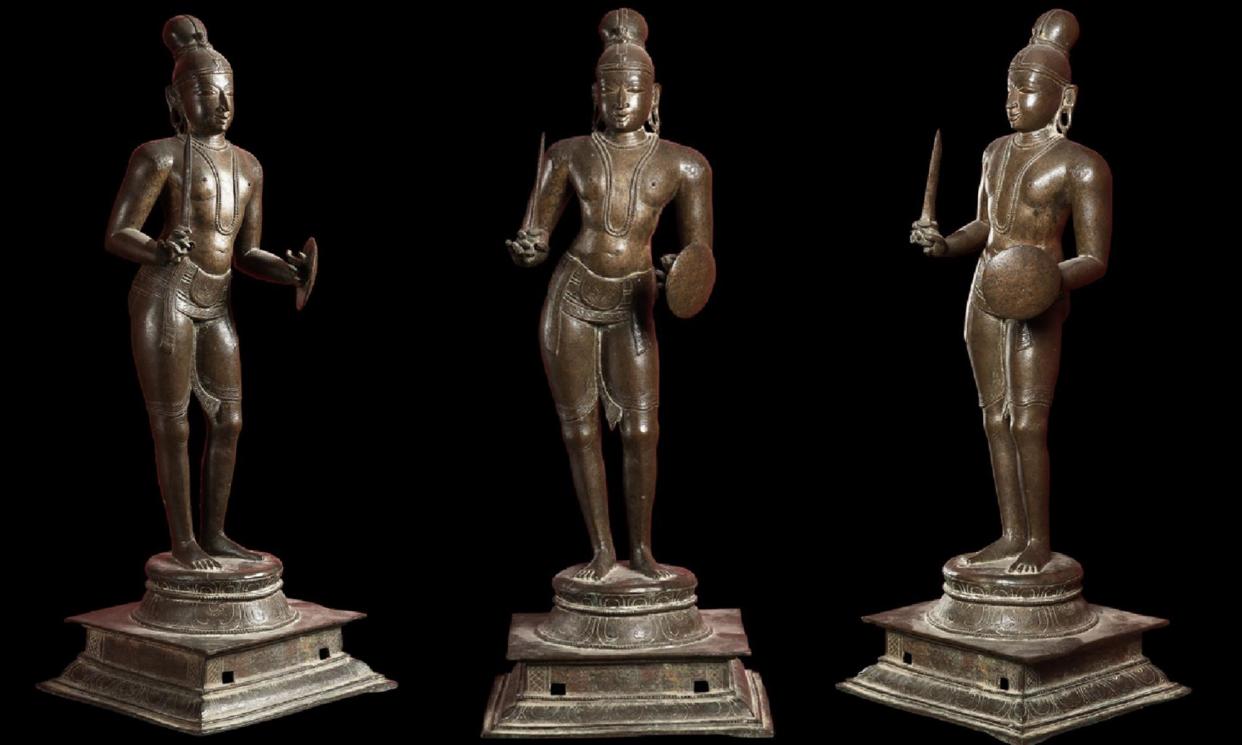Oxford University to return 500-year-old sculpture of Hindu saint to India

Oxford University has announced it is to hand back a 500-year-old sculpture of a Hindu saint to India.
The almost 60cm-tall bronze statue, which depicts Tirumankai Alvar, had been on display at the university’s Ashmolean Museum.
A claim for the 16th-century sculpture of the Tamil poet and saint from south India was made through the Indian high commission. It is believed the bronze may have been looted from an Indian temple.
A statement for the Ashmolean said: “On 11 March 2024 the council of the University of Oxford supported a claim from the Indian high commission for the return of a 16th-century bronze sculpture of saint Tirumankai Alvar from the Ashmolean Museum. This decision will now be submitted to the Charity Commission for approval.”
Related: Turkey rejects claim Lord Elgin had permission to take Parthenon marbles
Last May, the Queen Consort Camilla wore Queen Mary’s crown at King Charles’s coronation without the controversial Koh-i-noor diamond.
The Koh-i-noor, one of the largest cut gems in the world, was seized by the East India Company in Punjab, northern India, after its victory in the Second Anglo-Sikh War of 1849.
It was given to Queen Victoria and has been part of the crown jewels ever since and is on public display in the Jewel House at the Tower of London.
India has made several claims to be the rightful owner of the diamond, which was used in the coronation of Queen Elizabeth, the Queen Mother.
The governments of Iran, Pakistan and Afghanistan have also claimed ownership of the gem and have demanded its return since India gained independence from the British empire in 1947.
In 2022, Oxford and Cambridge universities said that they could return collections of the Benin bronzes after Nigeria requested them.
More than 200 artefacts were looted by British colonial forces in 1897 in response to a violent trade dispute.
Several thousand brasses and other artefacts were taken by the British and sold in London to recoup the costs of the military mission.
Last year, the prime minister, Rishi Sunak, was involved in a row with the Greek prime minister, Kyriakos Mitsotakis, who used an interview to push for the return of the Parthenon marbles.
Sunak accused Mitsotakis of trying to “grandstand” over the Parthenon sculptures after cancelling a meeting with the Greek leader.
Athens has been campaigning for decades for the return of the artefacts. The country has long claimed they were illegally acquired during a period of foreign occupation.

 Yahoo News
Yahoo News 
